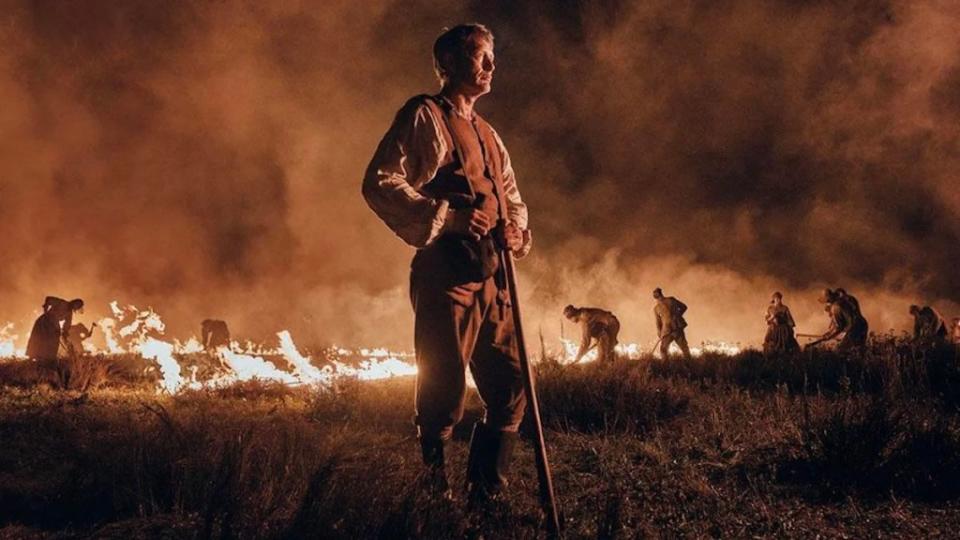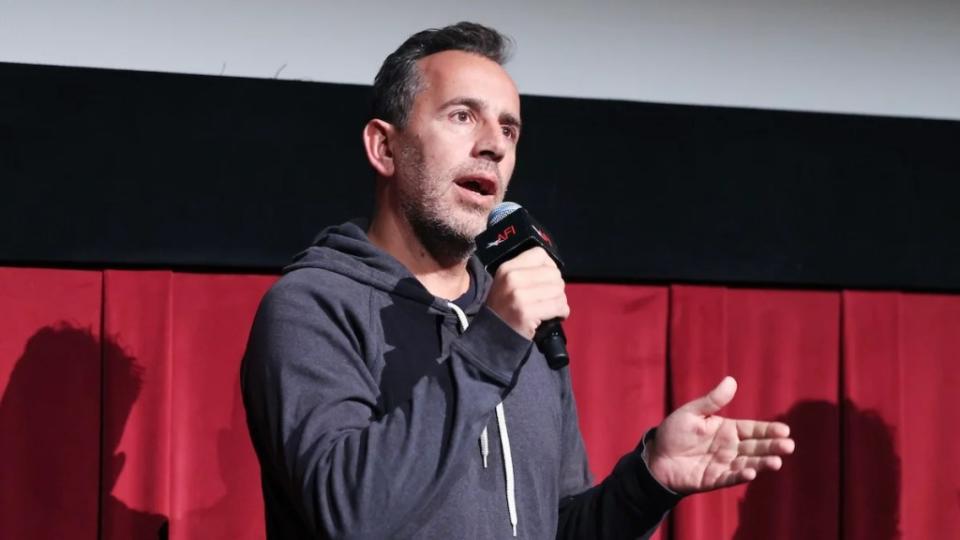Mads Mikkelsen Says Blockbusters Like ‘Fantastic Beasts’ Are Fine, but He Really Wants to Make More Danish Films
- Oops!Something went wrong.Please try again later.
- Oops!Something went wrong.Please try again later.
A version of this story first appeared in the International Feature Film issue of TheWrap’s awards magazine.
Denmark leads all countries with eight international Oscar nominations in the 21st century, and Mads Mikkelsen has been in four of them, including the 2020 winner “Another Round” and the 2012 nominee “A Royal Affair,” which introduced Alicia Vikander to U.S. audiences.
He has a chance to make it five this year with “The Promised Land,” the 2023 Danish Oscar submission that also stars Mikkelsen. Like “A Royal Affair,” “The Promised Land” is a period drama directed by Nikolaj Arcel — and Mikkelsen’s experience working on that earlier film was a major reason why he was eager to head the cast of the new one as Ludvig Kahlen, a real-life former soldier who tried to build a settlement on the barren and inhospitable Jutland heath in 1755.
“I thoroughly enjoyed the way Nik has of telling epic stories that are focused on characters, which is a rare thing to do,” Mikkelsen said over lunch with Arcel in Beverly Hills. “We both grew up with a fascination for epic storytelling. We did not grow up with small kitchen-sink dramas. Our upbringing was big American films, epics like ‘Lawrence of Arabia’ and ‘Indiana Jones.’”
“The Promised Land” takes place in vast open spaces where Kahlen battles with the elements and with rapacious local lords, but it’s also a drama that zeroes in on the obsessions that drive Kahlen and on his growing relationship with Ann Barbara (Amanda Collin), the widow of a runaway sharecropper Kahlen had taken in. Arcel had been sent the Ida Jessen book “The Captain and Ann Barbara” before publication, and it struck a nerve.
“It was perfect timing,” he said. “I had just become a father for the first time when I read it, and I saw the themes clearly. To me, it was about ambition versus family and closeness and love.”
The gravity of Mikkelsen’s performance is essential to the film, and Arcel knew that from the start. “I called Mads up before even writing the script,” Arcel said. “I said, ‘I really hope you like the story, because I don’t want to do it without you.’ So thankfully he said yes, even though he said the pitch was in the lower end of the scale. It was ‘man grows potatoes on the heath.’ And he was like, ‘Is there anything else in there?’”

There was; Kahlen may have a singular obsession with building a settlement in singularly forbidding territory, but his pursuit of that goal threatens to destroy him as the film goes on.
“The character was super interesting to give life to,” Mikkelsen said. “He so desperately wants to be part of something he hates, and he’s so single-minded until small cracks appear. I think it’s very human, and there was a lot of drama there. It’s always more interesting when the drama is driven by the character himself, not by outside things.”
While the film is based on Jessen’s book, Mikkelsen opted not to look beyond the script for details about the real man on whom his character is based. “I could have gone on Wikipedia to see a few things, but I wouldn’t do it,” he said. “But I am going to read the book later.”
“I think that was a sign of respect for me and [cowriter] Anders Thomas Jensen,” Arcel said. “When you read a script and then you read the book, you start feeling, ‘Oh, why wasn’t this in there? Why did you leave this out?’ But you chose to have faith in our adaptation.”
The film has an epic scale, but Arcel was determined to keep the running time to two hours. And he made the movie for about 8 million Euro (less than $9 million), definitely not an epic-sized budget. “We had a fraction of the budget we would have had here in the U.S.,” he said. “The challenge of that is that you have to be insanely well prepared. You have to know every shot before you even start shooting, and you have to run quite fast. We had a lot of shots every day, a lot of setups. And that put a lot of pressure on me and the actors to be flexible and to deliver quite precisely.”
“But I love working like that,” Mikkelsen said. “There’s nothing worse than having a full day of 12 hours and you spent seven of them in your trailer. That’s just the worst. But this one was fun. After the shoot, we’d all go have a coffee and talk about the next day. We didn’t have a lot of time, so everybody has to feel comfortable and safe. And part of that is trusting Nik when he says, ‘Cut, we got it.’ You might want to say, ‘Can we do one more?’ But you have to trust that it’s there.”
Arcel laughed. “Of course, sometimes I’ll just lie and say we have it, but really I’m looking at my watch,” he said.
Mikkelsen shook his head. “I’m not supposed to hear that part,” he said with a grin.

After “A Royal Affair,” Arcel received interest from Hollywood studios, and the director lived in Los Angeles for four years and made the big-budget Stephen King adaptation “The Dark Tower” for Columbia Pictures. The film was not successful either critically or commercially, and was not a satisfying experience for Arcel.
“I wasn’t happy here,” he said. “I think the main reason is that you lose autonomy here. You lose your own voice, in a way. I think certain types of directors have an easy transition — but working on a big studio picture, for me, felt like there were too many chefs in the kitchen, too many voices, too many decision makers. It didn’t feel like it was my film, but it was more like a lot of people’s film. And I had a hard time adjusting to that.”
Of course, Mikkelsen has done his share of big American films, too, from his classic Bond villain in “Casino Royale” through “Doctor Strange,” “Rogue One,” the “Fantastic Beasts: The Secrets of Dumbledore” and this year’s “Indiana Jones and the Dial of Destiny.”
“I experience the scale difference on those films, but I still try to make it as intimate as I can,” he said. “But more and more, it becomes clear to me that I also need to go back [to Danish cinema]. It’s my place. It’s where I started, where my friends are, and there’s a difference in the way of working that I need to be part of in order to go out with extra energy and do the other things.
“Here, the intimate feeling comes naturally. It’s my language, it’s my stories. Even though I was never on the heath as a kid, it feels like where I come from.”
A version of this story first appeared in the International Feature Film issue of TheWrap’s awards magazine. Read more from the issue here.

The post Mads Mikkelsen Says Blockbusters Like ‘Fantastic Beasts’ Are Fine, but He Really Wants to Make More Danish Films appeared first on TheWrap.

